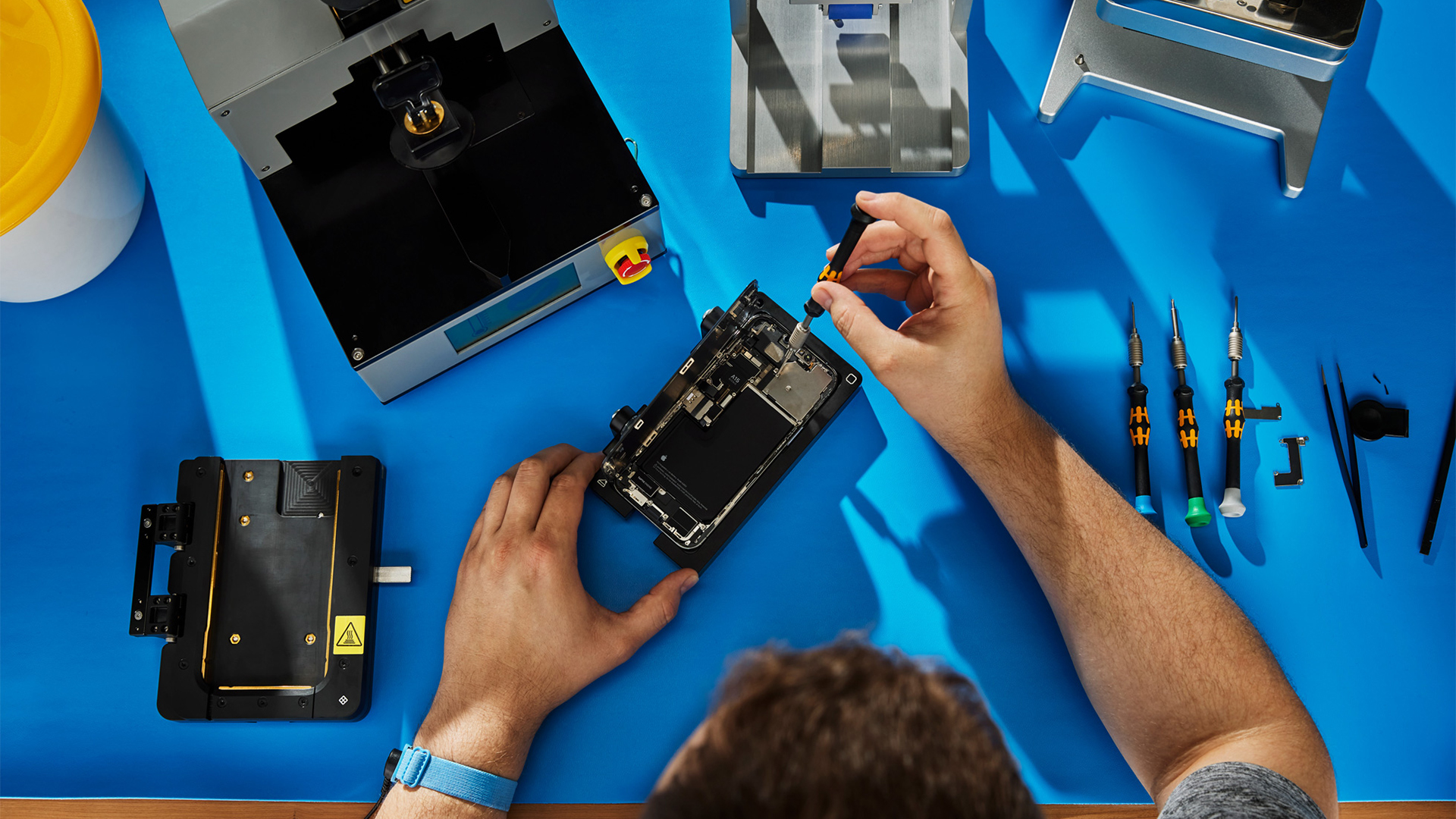Apple's USB-C switch is only the beginning, now the EU wants another iPhone change
New plans could force Apple, Samsung and other manufacturers to redesign their devices again


Apple, Samsung and other major phone manufacturers could soon have to comply with another EU ruling that will change the way they design devices.
After forcing the entire market to adopt USB-C for charging - a move that has prompted Apple to use it in the forthcoming iPhone 15 range - the European Parliament has approved new rules that will change the batteries in handsets forever.
As part of its tech sustainability push, the EU will demand that portable batteries in all the best phones must be designed in such a way that consumers themselves "can easily remove and replace" them.
That doesn't necessarily mean Apple and other manufacturers will need to add the ability to slot batteries in and out of their devices, only that it must be a quick and simple job to open a phone (or other type of "appliance") and replace the cell(s).
In some cases, Apple's Self-Service Repair scheme may already cover many of the suggestions used in the report. Samsung has also recently announced that it is introducing a similar system in Europe - which may have been triggered by the announcement.
The extensive new EU rules don't just apply to portable devices, but every type of battery used or sold in the Union. They also cover waste collection targets for batteries and digital battery passports to ensure they are safe when entering EU member states.
Electric vehicles will also be affected by the changes.
Get all the latest news, reviews, deals and buying guides on gorgeous tech, home and active products from the T3 experts
When will the EU battery ruling start?
Of course, it may take a while for them to come through and be enforced. After all, the EU laws on USB-C charging don't even come into effect until 2024. And, as the European Parliament has only just approved the rules, there are several other steps and hoops to jump through before they are fully passed.
They also only apply to battery technology sold in EU countries - which excludes the UK and rest of the world. However, as with the USB-C decision, it is unlikely any manufacturer would be happy to have its products banned in the region. And, ultimately, the end user is the one that is set to benefit the most.

Rik is T3’s news editor, which means he looks after the news team and the up-to-the-minute coverage of all the hottest gadgets and products you’ll definitely want to read about. And, with more than 35 years of experience in tech and entertainment journalism, including editing and writing for numerous websites, magazines, and newspapers, he’s always got an eye on the next big thing.
Rik also has extensive knowledge of AV, TV streaming and smart home kit, plus just about everything to do with games since the late 80s. Prior to T3, he spent 13 years at Pocket-lint heading up its news team, and was a TV producer and presenter on such shows as Channel 4's GamesMaster, plus Sky's Games World, Game Over, and Virtual World of Sport.